Pernell Whitaker: Gone Too Soon
When the United States Olympic Boxing Team sauntered away with a staggering nine gold medals in 1984, Pernell Whitaker was actually lost in the shuffle.
First came an amateur prodigy out of New York named Mark Breland who stole the vast majority of the press from everyone else on the team, but then there were also bigger guys like Evander Holyfield and Henry Tillman who scored more knockouts. Where did a throwback defensive wizard even fit in?
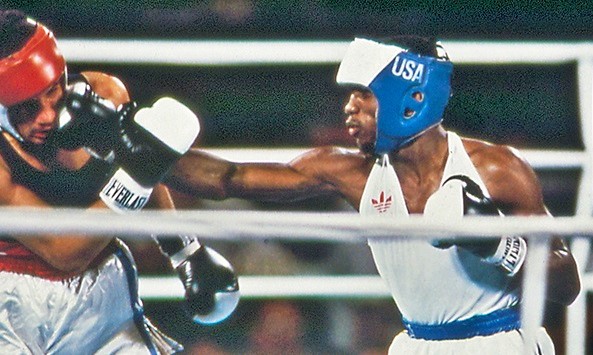
“I’ve been getting more appreciated since retirement,” Whitaker told an interviewer in 2018. “I get more acknowledgement now than I did when I was fighting.”
It took years for Whitaker’s genius to be fully grasped by fans and pundits alike, and just when it seemed he’d found a groove in retirement — training, on the lookout for young fighters to mentor — the boxing world lost him.
“Sweet Pea” Whitaker, the four-division champion, was struck by a car and killed in Virginia Beach, Virginia on Sunday night. He was only 55.
Sadly Whitaker knew about falling short, despite tabbing only four losses in 46 professional bouts. The first one, in his first crack at a major world title, left a painful sting. And it wasn’t the broken left hand he’d fought with for half the night. He had outclassed WBC lightweight champion Jose Luis Ramirez, but the judges’ scorecards said different.
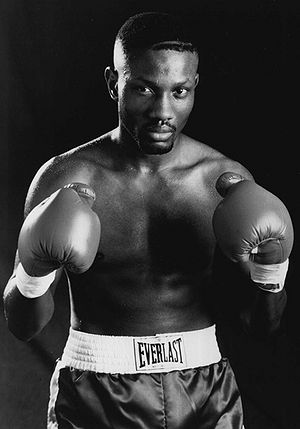
A despondent Whitaker said after the fight, “You can’t get a better win. I beat him with one hand.”
Most news outlets called the decision a blatant robbery and after the fight Whitaker’s manager Lou Duva went nuclear, accusing late WBC president Jose Sulaiman of fight fixing. “Sulaiman is a goddamned thief!” he screamed into the television cameras. Indeed it seemed the power structure, looking for an all-Mexico lightweight unification between WBA champion Julio Cesar Chavez and Ramirez, had acted accordingly.
After defeating Greg Haugen for the IBF title and then avenging the putrid Ramirez decision by dominating the Mexican in a rematch, Whitaker wouldn’t be defeated until Oscar De La Hoya ran off with a dodgy verdict in their close 1997 fight. But it was a draw in 1993 that almost turned Pernell away from the sport entirely.
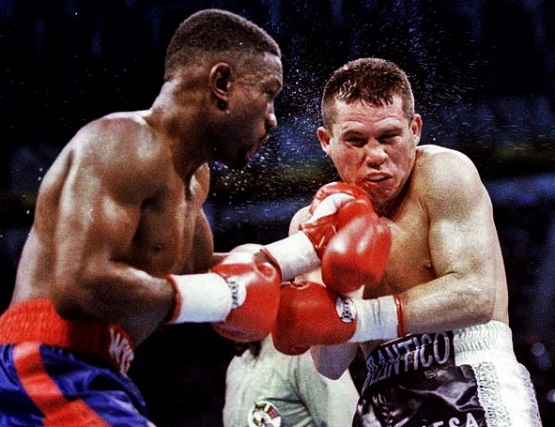
Julio Cesar Chavez brought nearly ninety victories and no defeats into the ring against Whitaker in San Antonio, but not a ton else. Whitaker smothered most of the incoming, landed the most jarring punches of the fight, and even out-fought Chavez at times, but was still denied a win by the judges.
El Paso Times writer Bill Knight watched the bout among several hundred stunned and silent Chavez supporters at the El Paso civic center. And, said Knight, it was Whitaker, landing some ninety more punches on Chavez, who won over most of those in attendance. “Sweet Pea” had a way of doing that.
The wonkiness of the Ramirez and Chavez outcomes epitomize much of what is still wrong with boxing twenty-five years later and the Chavez fight in particular is often called one of the worst decisions of all-time. They were both memorably bad: the week after the Chavez bout, the cover of Sports Illustrated showed Pernell landing a jab on Julio with the word “Robbed!” in big, bold letters.
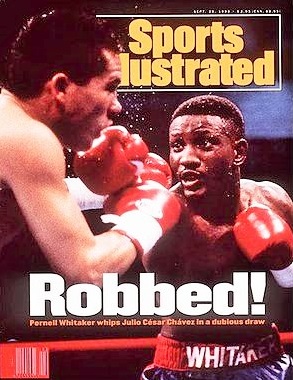
After the fight “The Lion of Culiacán” told Whitaker, “You have a lot of courage. We’ll make a lot of money in the rematch.”
But Chavez, who shortly thereafter suffered his first career loss to Frankie Randall, knew what awaited in a rematch. Whitaker made almost everyone look bad, and no fighter wants to look bad if they can help it. The lucrative rematch never came. But Whitaker didn’t mind. Not outwardly, at least. The draw meant he still walked away with his belt and he managed to view the entire ordeal as a net positive. “Controversy always sells,” he said. “It was worth being on the cover of Sports Illustrated.”
Besides, the next time Whitaker donned SI’s cover, in 1994, it read, “The Best: Welterweight King Pernell Whitaker, Pound for Pound the Finest Fighter in the World.”
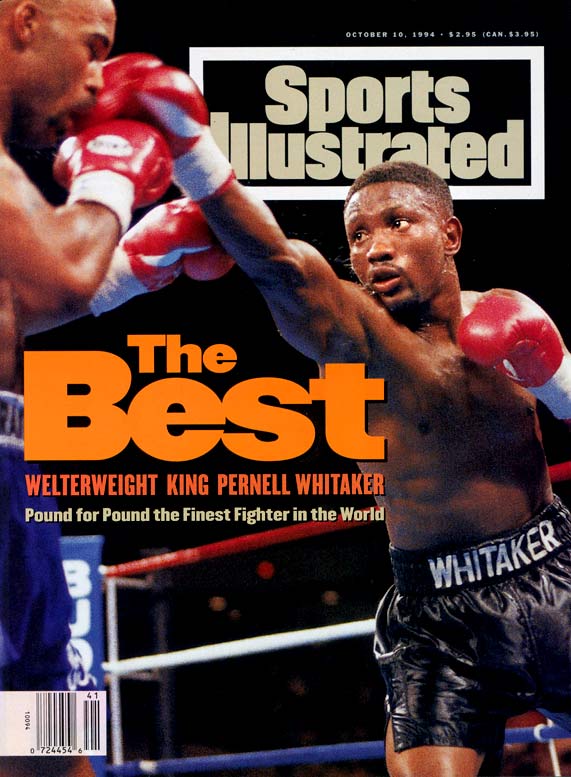
Ultimately the De La Hoya fight proved to be Whitaker’s final strong showing, and the Norfolk, Virginia native struggled with drug addiction in his final years as a professional fighter. A 1997 win over Andrey Pestryaev was ruled a no contest and a 1998 fight against Ghanaian boxer-puncher Ike Quartey was canceled entirely; both due to Whitaker testing positive for cocaine.
Things got even messier from there. In 2001 Whitaker was arrested for bringing cocaine to traffic court, and the following year he caught a charge for possession of cocaine, violating his probation. His final bout, against Carlos Bojorquez in 2001, saw Whitaker bow out with a broken clavicle after four rounds. But the International Boxing Hall of Fame rightly recognized Whitaker’s accomplishments and inducted him in 2007.
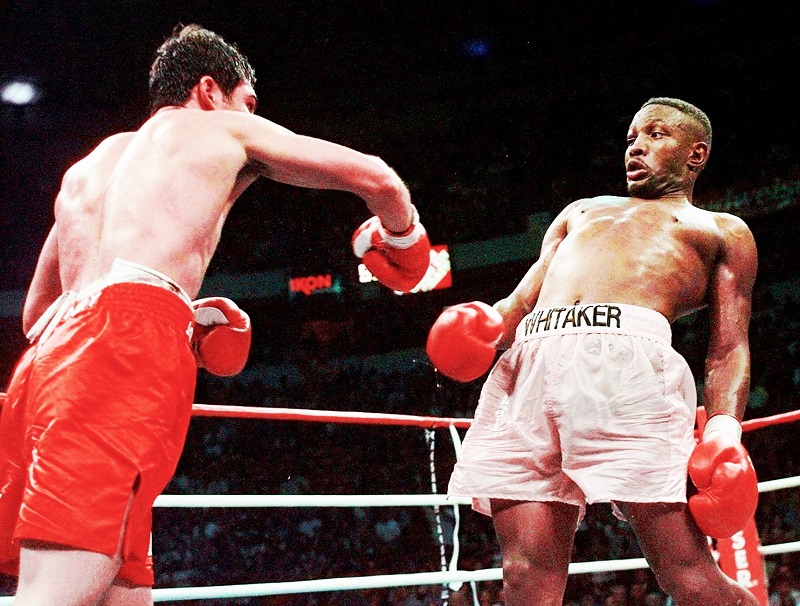
Winning fights isn’t easy. Becoming a multiple-division champion is harder still, never mind rising above all other fighters around. But to do those things with little punching power and a decidedly unaesthetic boxing style requires something truly special. Whitaker did this for more than a decade.
Despite his being taken from us far too early, his journey seemed to come full circle: from world amateur champion at 132 pounds as a teen, to fallen lightweight great, to actively seeking out kids who need help. Maybe Pernell saw something of himself in those kids, or maybe he just sought to give back to the community that finally started treating him how he deserved. But that circle is now broken before it could ever see a truly fitting conclusion.
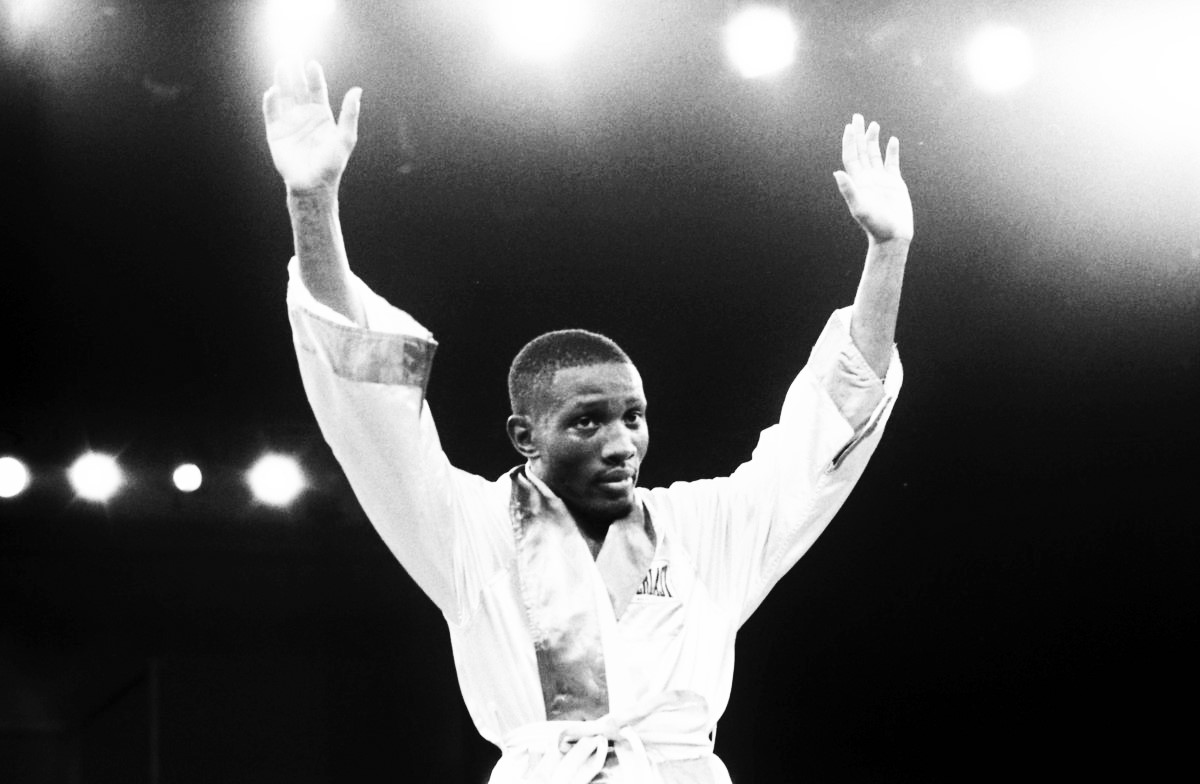
Much of being a boxing fan is simply preparing one’s self for when cherished fighters fall. Boxers, perhaps the most human of us all, are guaranteed to fail. If not in the ring, then away from it or, with near certainty, after it. Few things compare to the highs and lows of riding the fight rails. And prematurely losing one of the greatest fighters of a generation is a deep low.
Pernell Whitaker knew a thing or two about being robbed. And now boxing is robbed of him. — Patrick Connor

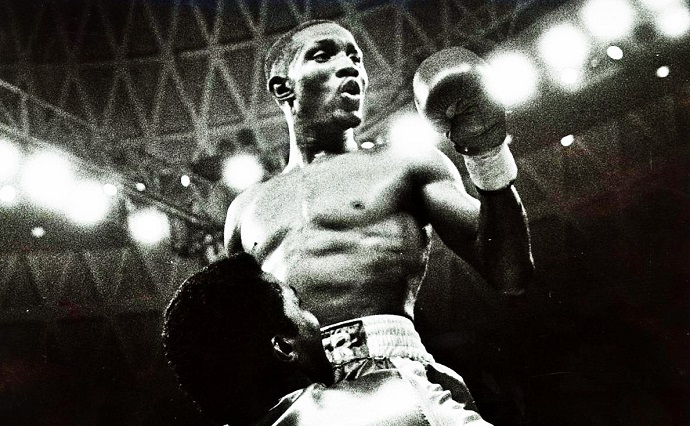

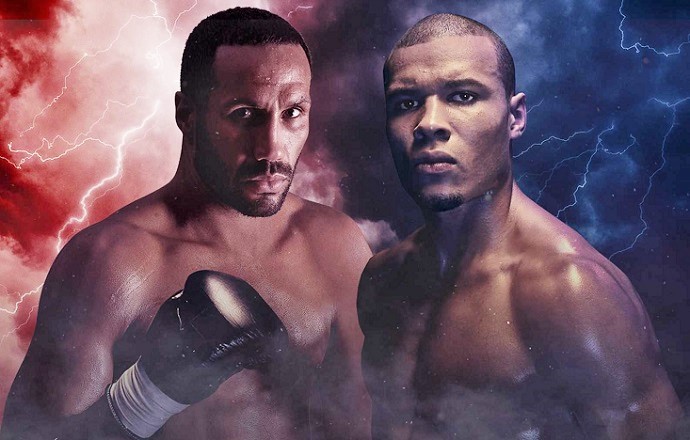
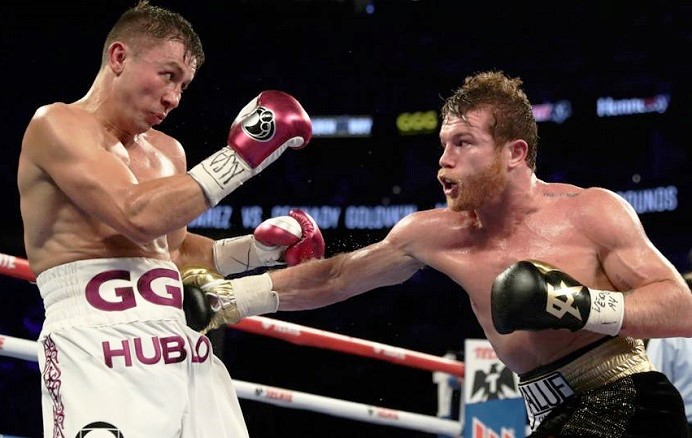
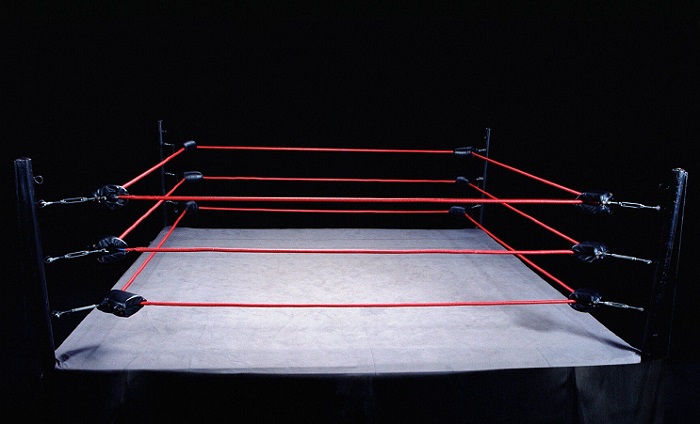
Great story. He was more than something else to see. Despite the record, never saw Pernell lose or even draw in a fight.